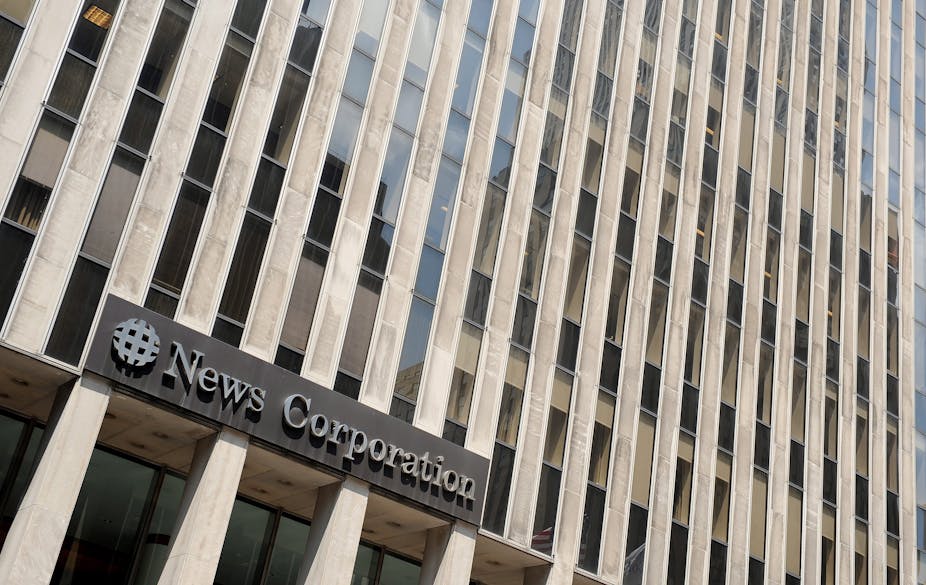News Corporation’s 2004 decision to domicile in the US state of Delaware has up to now been highly favourable to the Murdochs.
But News Corp may ultimately come to regret its decision as the unfolding corporate crisis which began in Britain threatens to spread to its US heart.
Institutional shareholder, Amalgamated Bank of New York, which announced in March it would sue News Corp directors, has recently amended its pleadings in the case, accusing News Corp of a “culture-run-amok” with directors failing to provide effective review or oversight.
The FBI is investigating claims that the News of the World may have hacked the phones of victims of the September 11, 2001 terrorist attacks.
And former New York State Attorney General Eliot Spitzer has publicly encouraged the Justice Department to prosecute News Corp under the US Foreign Corrupt Practices Act, on the basis that News Corp is “an American business incorporated in Delaware and listed on American financial exchanges”.
Until 2004, this was not the case. The News Corp empire had for decades been based in Australia. News Corp’s move to the United States was both controversial and fundamental to Rupert Murdoch’s continuing control over News Corp.
The original reincorporation proposal prompted a revolt by a number of institutional investors, who complained the move would strengthen the managerial power of the family and reduce shareholder rights.
The institutional investors were particularly concerned that Delaware provided a more hospitable terrain than Australia for a range of control enhancement mechanisms, such as staggered boards, dual class stock and anti-takeover mechanisms, including the controversial “poison pill”.
There are indeed many significant, but under-appreciated, differences between US corporate law and the law of other common law jurisdictions, such as Australia, that affect the balance of power between shareholders and the board of directors.
Delaware law is considerably more deferential and protective to management interests than Australian corporate law, under which shareholders possess stronger rights.
At the time of the announcement of the proposed relocation to the United States, News Corp’s institutional investors sought a range of corporate governance concessions which would provide them with greater shareholder protection and participatory rights than existed under Delaware law.
News Corp, which initially refused to meet their demands, was ultimately brought to the bargaining table when a major US proxy adviser, ISS, entered the debate. This threatened to undermine the success of the planned restructure, since the relevant schemes of arrangement implementing the move to Delaware required shareholder consent, with Murdoch family interests voting as a separate class.
News Corp’s concessions to the institutional investors appeared at face value to be significant in providing shareholder protection. Some financial press commentators greeted them as a major victory for the institutional investors and for shareholder democracy at the time.
Nonetheless, News Corp was able to neutralise or subvert the effectiveness of many of these concessions, using a variety of techniques that included the waiver of certain listing rules by the Australian Securities Exchange (ASX), and the unilateral amendment by News Corp of a board policy limiting the directors’ power to implement poison pills.
The ultimate effect of the News Corp reincorporation saga was to subvert shareholder rights and increase centralised managerial power.
News Corp’s action in altering its board policy concerning poison pills was particularly contentious. It led to litigation by a consortium of institutional investors against News Corp for breach of contract.
In the 2005 case of UniSuper Ltd v News Corp, which ultimately settled, Chancellor Chandler of the Delaware Chancery Court stated that: “News Corp thus finds itself in a stew of its own making”.
Now, the business world is riveted by another corporate governance stew within the News Corp group.
But many of the issues at the heart of News Corp’s move to the US resonate in the unfolding crisis today.
At last it is likely we will see enhanced scrutiny of corporate governance matters within the group, including the level of independence of the directors and the effectiveness of the board as a monitor.
It is also important for News Corp to consider separating Rupert Murdoch’s roles as CEO and chairman. Finally there will be renewed pressure on News Corp to tackle the conflicts of interest and related party transactions with Murdoch family interests, as well the incentives offered by executive remuneration within the group.
And last but not least, succession arrangements.
Jennifer Hill’s article, “Subverting Shareholder Rights: Lessons from News Corp.’s Migration to Delaware” (2010) 63 Vanderbilt Law Review 1, which discusses in detail News Corp.’s reincorporation in Delaware, is available on the Social Science Research Network (SSRN) at http://papers.ssrn.com/sol3/papers.cfm?abstract_id=1541644.

